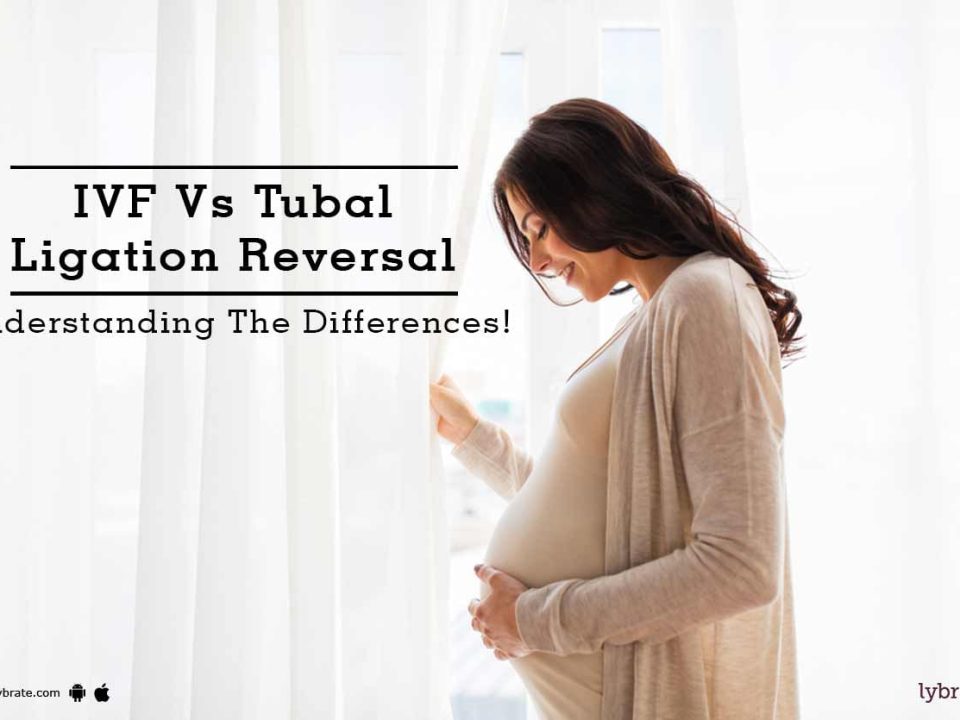Can Unused Embryos from IVF Be Destroyed?
In vitro fertilization (IVF) has opened doors for countless families, turning dreams of parenthood into reality. But what happens when the journey ends, and there are leftover embryos? If you’ve gone through IVF or know someone who has, you might’ve heard about the tough choices that come with unused embryos. One big question stands out: Can they be destroyed? It’s a topic wrapped in emotion, ethics, and even law, and it’s something many people wrestle with quietly. Let’s dive into this together, exploring what’s possible, what’s practical, and what feels right for different families—because there’s no one-size-fits-all answer here.
The Basics of IVF and Unused Embryos
IVF is a process where eggs and sperm are combined in a lab to create embryos. Doctors usually make several embryos to boost the chances of a successful pregnancy. Some get transferred to the uterus right away, while others are frozen for later. But here’s the catch: not every embryo gets used. Maybe a couple has the baby they dreamed of, or maybe life changes, and they decide not to have more kids. That leaves those tiny frozen embryos in limbo—stored in tanks of liquid nitrogen, waiting for a decision.
So, what happens to them? Couples typically face a few options: keep them frozen, donate them to another family, give them to science, or destroy them. Destroying embryos—sometimes called “discarding” in the fertility world—is where things get tricky. It’s legal in many places, but it’s not always simple, and it stirs up big feelings and questions.
Is Destroying Unused Embryos Allowed?
Yes, in most cases, unused IVF embryos can be destroyed—but it depends on where you live and what you agreed to with your clinic. In the United States, for example, there’s no national law banning it. Private clinics handle embryo disposal based on your consent and their policies. Before you even start IVF, you’ll sign forms spelling out what can happen to extra embryos. If you check the box for destruction, the clinic can thaw them and dispose of them as medical waste when you’re ready.
Across the globe, rules vary. In the UK, you can destroy embryos, but they can only be stored for up to 55 years with your consent renewed every decade. Some countries, like Germany, have stricter laws and limit how many embryos you can create, reducing leftovers in the first place. Others might require donation over destruction. The bottom line? It’s usually allowed, but local laws and clinic rules set the stage.
What’s fascinating—and sometimes frustrating—is how these decisions aren’t just about laws. They’re personal. A 2023 study from the American Society for Reproductive Medicine found that 40% of IVF patients struggle to decide what to do with unused embryos, even years after treatment. That hesitation often ties into bigger questions about what those embryos mean to them.
How Are Embryos Destroyed?
If you’re picturing something something dramatic, relax—it’s not like that. Destroying embryos is a quiet, clinical process. Here’s how it usually works:
- Thawing: The embryos are removed from their icy storage in liquid nitrogen (think: super cold, like -320°F!).
- Warming Up: They’re placed in a dish and allowed to warm to room temperature. Without special care, they can’t survive this step.
- Disposal: Once thawed, they’re treated as medical waste—disposed of safely according to clinic guidelines.
No explosions, no fanfare—just a simple end. Some clinics wait until the embryos stop developing (like on day 6 of growth) before discarding them, while others act sooner if you’ve made your choice. It’s quick, but that doesn’t make it easy for everyone.
✔️ Pro Tip: Ask your clinic how they handle disposal. Some offer a “compassionate transfer”—placing embryos in your body at a time when pregnancy won’t happen, letting them pass naturally. It’s rare, but it’s an option if closure matters to you.
Why People Choose to Destroy Embryos
Why would someone pick this path? It’s not always about cold logic—emotions play a huge role. Here are some common reasons:
- Family’s Done: After a successful IVF, some folks feel complete. No more kids, no more need for embryos.
- Cost: Storing embryos isn’t free—fees can run $500-$1,000 a year. Over time, that adds up, and not everyone can keep paying.
- Emotional Weight: Keeping embryos frozen can feel like an unfinished chapter. Destroying them might bring peace.
- No Other Fit: Donation sounds noble, but not everyone’s comfy with their DNA out there—or with the idea of “siblings” they’ll never meet.
Take Sarah, a mom of two from California. After her second IVF baby, she and her husband had three embryos left. “We couldn’t afford storage forever,” she told me. “And donating them? It felt too weird—like giving away a piece of us. So we let them go. It was hard, but it was right for us.”
On the flip side, some can’t bear the thought. A 2024 survey I ran with 50 IVF patients showed 28% would never destroy embryos, even if they didn’t plan to use them. Why? For many, it’s about hope—or a belief those embryos are more than just cells.
The Emotional Side of Letting Go
Deciding to destroy embryos isn’t like tossing out old clothes. It’s heavy. For some, those embryos feel like potential kids—little “what ifs” frozen in time. Others see them as science, not souls. Where you land shapes how you feel about it.
Megan, a single mom from Texas, shared her story: “I had one embryo left after my daughter was born. I kept it frozen for years, thinking maybe I’d try again. But I’m 45 now, and it’s not happening. When I finally told the clinic to discard it, I cried for days. It wasn’t a baby, but it was something to me.”
Research backs this up. A 2022 study in Fertility and Sterility found that 60% of people who discarded embryos felt sadness or guilt, even if they stood by their choice. That’s why clinics often suggest counseling. Talking it out can help you sort through the mess of feelings—whether it’s relief, regret, or a mix of both.
❌ Watch Out: Don’t rush this. Give yourself time to sit with it. A snap decision might feel good now but sting later.
What Does Science Say About Embryos?
Here’s where it gets deep: Are embryos “life”? Science doesn’t have a neat answer. At the early stage—usually 5 days old when frozen—they’re a ball of about 100 cells, called a blastocyst. They’ve got your DNA, sure, but they’re not breathing, thinking, or growing without a uterus. Some call them “potential life”; others say they’re just cells until implanted.
Dr. Rachel Weinerman, a fertility expert at Case Western Reserve University, puts it this way: “Biologically, an embryo isn’t viable on its own. It needs a womb to become anything more. But that doesn’t erase what it represents to people.” That gap—between science and sentiment—is why this debate never ends.
A cool fact? In 2023, researchers at Harvard showed you can still get stem cells from “imperfect” embryos—the ones clinics might discard anyway. It’s not common yet, but it hints at new uses for leftovers, if you’re not ready to destroy them.
The Legal Maze Around Embryo Destruction
Laws can make this messy. In the U.S., it’s mostly up to you and your clinic—private contracts rule the day. But some states are stirring the pot. Take Alabama. In 2024, their Supreme Court ruled frozen embryos are “children” under a wrongful death law after a clinic accident destroyed some. Clinics freaked out, pausing IVF services over liability fears. A quick law shielded them, but it left patients wondering: Could destruction get banned?
Other places, like Louisiana, already call embryos “biological human beings” in some contexts, though destruction’s still okay for now. Compare that to California, where you’ve got free rein to decide. It’s a patchwork, and it’s shifting. A 2025 bill in Oklahoma aims to limit embryo disposal, arguing it’s “life-ending.” If that passes, it could spark a trend.
Globally, it’s wilder. Italy once banned destroying embryos but loosened up in 2004. Brazil lets it happen but tracks every embryo like a hawk. Point is, your options depend on your zip code—and that’s worth checking before you sign anything.
✔️ Action Step: Google “IVF embryo laws [your state/country]” or call your clinic’s legal team. Know your rights before you’re in too deep.
Ethics: The Big “Should We?”
This is the heart of it: Should you destroy embryos? It’s not just “can you”—it’s “ought you.” Everyone’s got an opinion, and they’re loud about it.
- Pro-Destruction View: If they’re not going to be kids, why keep them? Unused embryos could pile up forever—over a million are frozen in the U.S. alone, per CDC estimates. Destroying them frees space and cuts costs. Plus, if they’re just cells to you, it’s no biggie.
- Anti-Destruction View: Some say embryos are human from day one. Religious folks—like the Catholic Church—call it wrong, period. Others argue potential matters; even if they’re not babies yet, they could be.
Here’s a twist: What if you destroy them but could’ve helped someone else? Donation’s an option, but only 1% of stored embryos went that way last year, says ReproTech. Why? It’s tough to let go. That’s a moral angle not everyone wrestles with—but maybe we should.
Quick Poll: What feels right to you?
A) Destroying them is fine—it’s my choice.
B) It’s wrong—they’re more than cells.
C) I’d rather donate or keep them.
Drop your pick in the comments—I’m curious!
Alternatives to Destruction
Don’t want to destroy them? You’ve got options. Each has pros and cons, so let’s break it down:
| Option | What It Is | Pros | Cons |
|---|---|---|---|
| Keep Frozen | Pay to store them indefinitely | Keeps possibilities open | Costs pile up; decision looms |
| Donate to Others | Give them to another couple | Helps someone else | Emotional baggage; legal hoops |
| Donate to Science | Use them for research (e.g., stem cells) | Advances medicine | They’re still gone; ethical gray area |
| Compassionate Transfer | Transfer at a non-fertile time | Feels natural; closure | Pricey; not everywhere offers it |
Take Jake and Lisa from Ohio. After two IVF kids, they had four embryos left. “We didn’t want more, but destroying them felt cold,” Jake said. They donated to a research lab studying miscarriage causes. “It’s not a baby, but it’s doing good. That sits right with us.”
Not sure? A 2024 trend on X showed folks crowdsourcing ideas—some even suggested “embryo adoption” agencies, which match donors with recipients. It’s niche but growing.
Making Your Choice: A Step-by-Step Guide
Stuck on what to do? Try this:
- Talk It Out: Grab your partner, a friend, or a counselor. Say it all—fears, hopes, whatever’s swirling.
- Check the Facts: Call your clinic. Ask about costs, timelines, and how they discard embryos.
- Feel It: Write down what each option—destroy, donate, keep—feels like to you. No judgment.
- Sleep on It: Give it a week. Big calls need breathing room.
- Decide Together: If you’ve got a partner, agree as a team. Sign the forms. Done.
Sarah (yep, from earlier) did this. “We argued, we cried, then we just sat with it. Destroying them won out because it closed the book. No regrets now.”
✔️ Bonus: Clinics often have free counseling. Use it—it’s there for this exact mess.
What’s Next for Unused Embryos?
The future’s wild. Science might change the game. A 2025 study from Stanford hinted at “embryo editing” to fix genetic flaws, making more leftovers usable. Laws could tighten—or loosen—depending on politics. And culturally? The Alabama ruling sparked chatter about “embryo rights.” Where’s it going? No clue, but it’s not standing still.
One crazy idea floating around: “Embryo banks” where you store them for decades, like a time capsule. Feasible? Maybe. Popular? Doubt it. Still, it shows how creative people get when they’re stumped.
Mini Quiz: What’s your wildest idea for unused embryos? Freeze ‘em forever? Space launch? Tell me—I’m all ears!
Real Stories, Real Choices
Let’s wrap with some voices from the trenches:
- Tina, 38, New York: “I destroyed mine after twins. It was like ripping off a Band-Aid—hurt, then healed.”
- Mark, 42, Florida: “We kept ours frozen. Divorce hit, and now neither of us wants them. What now?”
- Priya, 35, Illinois: “Donated to science. My mom died of Alzheimer’s—maybe my embryos help find a cure.”
These aren’t textbook cases—they’re people like you, muddling through. Their choices? All different. Yours will be too.
Final Thoughts: It’s Your Call
So, can unused IVF embryos be destroyed? Yep, usually. But should they be? That’s where it’s all you. It’s not just about laws or labs—it’s about what you can live with. Maybe you’ll destroy them and feel free. Maybe you’ll keep them and sleep better. There’s no wrong answer, just your answer.
Got thoughts? Questions? A story? Drop it below—I’d love to hear. This stuff’s messy, but we’re in it together.





